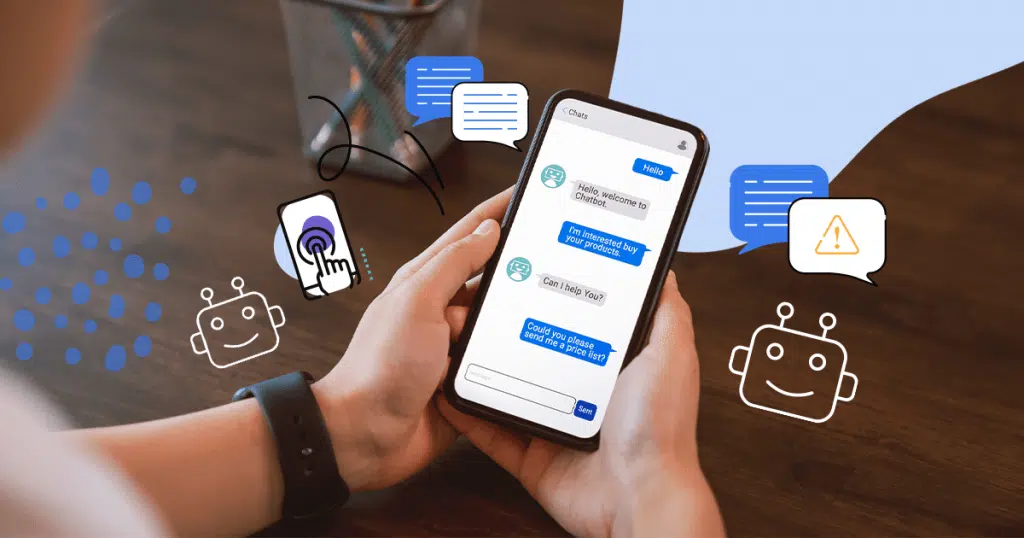In the competitive hospitality industry, providing excellent customer support is crucial for enhancing guest experience and ensuring repeat business. One of the most effective ways to improve customer service on your hotel website is by integrating AI chatbots. These intelligent systems can provide instant assistance, streamline operations, and elevate guest satisfaction. Here’s how to effectively use AI chatbots on your hotel website for customer support.

Table of Contents
Toggle1. Understanding AI Chatbots
AI chatbots are software programs that use artificial intelligence to simulate human conversation. They can interact with users via text or voice, answering questions and providing assistance 24/7. By implementing chatbots on your hotel website, you can offer immediate support to guests, enhancing their overall experience.
2. Identify Common Guest Inquiries
Before implementing a chatbot, analyze the types of questions and requests that guests frequently have. Common inquiries may include:
- Room availability and rates
- Booking modifications
- Amenities and services offered
- Check-in/check-out procedures
- Local attractions and dining recommendations
By understanding these common queries, you can program your chatbot to provide accurate and relevant information.
3. Select the Right Chatbot Platform
Choose a chatbot platform that aligns with your hotel’s needs and capabilities. Consider factors such as:
- Ease of Integration: Ensure that the chatbot can be seamlessly integrated with your existing website and any property management systems you use.
- Customization Options: Look for platforms that allow you to customize responses, ensuring that the chatbot reflects your hotel’s branding and tone of voice.
- Analytics and Reporting: Opt for a solution that provides analytics to track interactions, guest satisfaction, and areas for improvement.
4. Program the Chatbot for Diverse Scenarios
Create a comprehensive database of responses for various scenarios. This may include:
- FAQs: Develop a list of frequently asked questions along with detailed responses.
- Booking Assistance: Train the chatbot to guide guests through the booking process, including checking availability, making reservations, and handling cancellations.
- Personalized Recommendations: Equip the chatbot to provide tailored suggestions based on guest preferences, such as local attractions, dining options, and hotel services.
5. Implement Natural Language Processing (NLP)
Utilize Natural Language Processing (NLP) to enhance the chatbot’s ability to understand and respond to user inquiries more naturally. NLP allows the chatbot to comprehend variations in phrasing and context, enabling it to provide more accurate responses. This improves the user experience and builds guest trust in the system.
6. Ensure Seamless Handoffs to Human Agents
While chatbots can handle many inquiries, there will be times when human intervention is necessary. Ensure that your chatbot is programmed to recognize when to escalate a conversation to a human agent. This is particularly important for complex issues or sensitive inquiries, ensuring guests receive the support they need promptly.
7. Promote the Chatbot on Your Website
Make it easy for guests to find and use the chatbot on your website. Consider these strategies:
- Visibility: Place the chatbot icon in a prominent location on your website, such as the bottom corner of the homepage or on key pages like booking and contact information.
- Guided Prompts: Use welcome messages or guided prompts to encourage guests to interact with the chatbot, informing them about its capabilities and how it can assist them.
8. Monitor Performance and Gather Feedback
Regularly assess the performance of your chatbot to ensure it meets guest needs effectively. Use analytics tools to track interaction metrics, such as response times, user satisfaction ratings, and common queries. Additionally, gather feedback from guests regarding their experience with the chatbot and make necessary adjustments to improve its functionality.
9. Continuously Update and Train the Chatbot
The hospitality industry is constantly evolving, and so are guest expectations. Regularly update your chatbot’s knowledge base to reflect new services, policies, or local attractions. Continuous training will enhance its performance and ensure it remains relevant to your guests’ needs.
10. Highlight the Benefits of AI Chatbots to Guests
Educate guests about the benefits of using the chatbot for customer support. Highlight its 24/7 availability, quick response times, and ability to handle a variety of inquiries. This can encourage more guests to utilize the chatbot for their support needs.
Conclusion
Integrating AI chatbots on your hotel website can significantly enhance customer support, improve guest experiences, and streamline operations. By understanding common inquiries, selecting the right platform, and continuously updating the chatbot, you can provide guests with the assistance they need at any time. In an era where convenience and efficiency are paramount, AI chatbots are a valuable asset for any hotel looking to elevate its customer service and stand out in a competitive market. Embrace this technology and watch as it transforms your hotel’s guest interactions for the better!


No responses yet